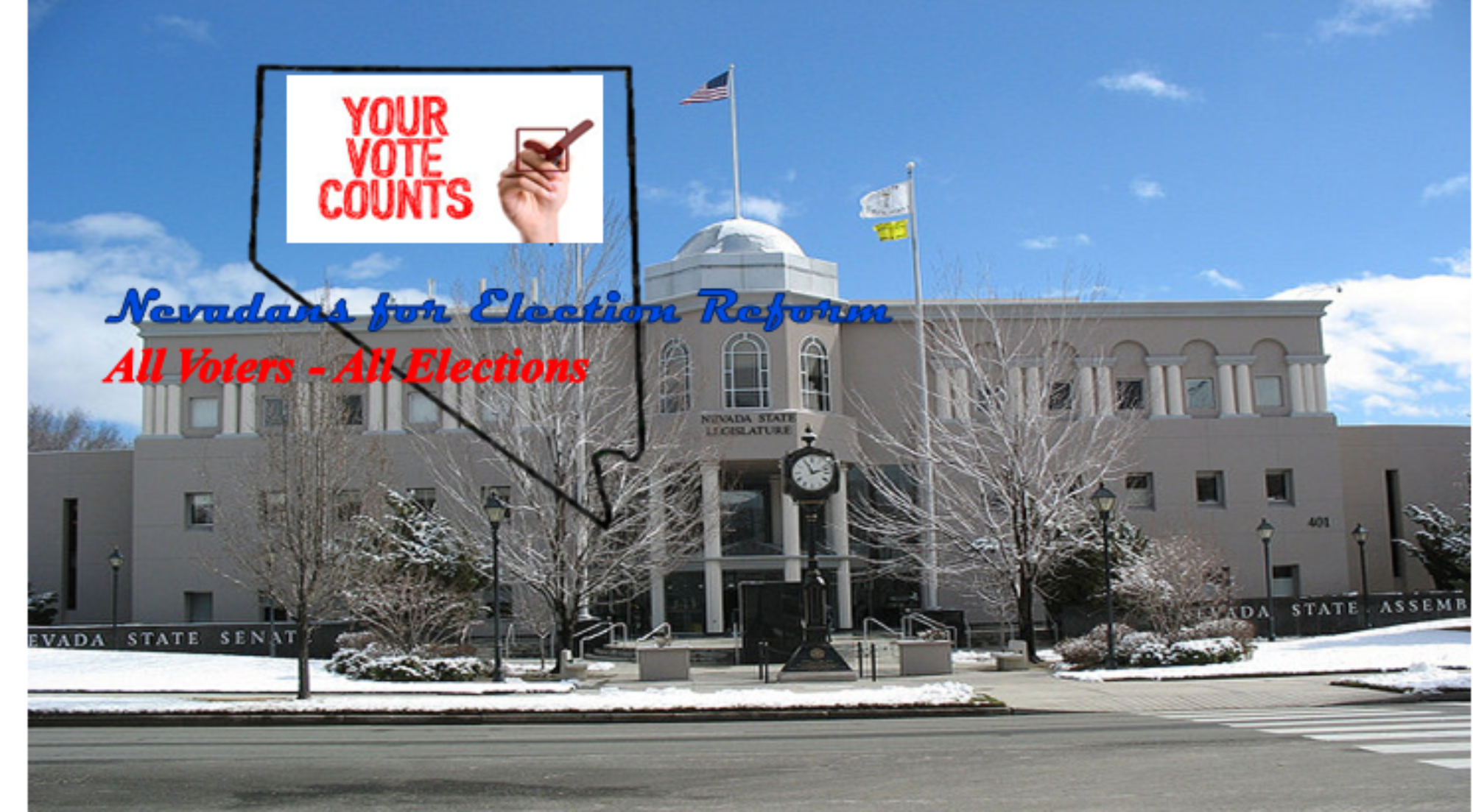UPDATE (February 18, 2017)
For the 2017 session, the Democratic Caucus changed the Blueprint. The following is in the introduction signed by both Senate Majority Leader Aaron Ford and Assembly Speaker Jason Frierson; “We also need to protect our heritage. That means preserving Nevada’s natural environment, protecting our constitutional rights, and making it easier for our citizens to participate in the democratic process.”
“Though Democrats won’t release their full slate of legislative priorities until February, one issue both Ford and Frierson have already highlighted as critical in the upcoming session is expanding voting rights, especially amid fears that the Trump Administration won’t fight against initiatives that could disenfranchise minority groups.”
The above paragraph (bold highlight added) is from an article by Megan Messerly and Michelle Rindels, “Ford and Frierson: Will the Legislature’s new leaders be complements or competitors?”published by The Nevada Independent on January 21, 2017.
During the 2015 session of the Nevada legislature, the Democratic caucus published the “Nevada Blueprint”. This document outlines the principles and legislative goals of the caucus.
From that document (bold highlight added)
PROTECTING YOUR RIGHTS
Our Nevada Blueprint Will:
- Fight to ensure that voting is free, fair, and accessible for all eligible voters in Nevada.
- Protect every Nevadan’s right to his or her day in court.
- Encourage voter participation by providing for same-day voter registration, implementing Election Day vote centers, and automating the DMV’s voter registration system.
“..expanding voting rights” and “..accessible for all eligible voters..”. At the end of 2016, over 27 percent of registered voters in Nevada are not affiliated with either the Democratic or Republican Party. Nearly 21 percent are registered as Non-Partisan. Month after month, both major political parties lose voter share while Non-Partisan and minor parties gain. This trend is across all demographics; Clark and Washoe Counties, the rural counties, those between the ages of 18 to 34 (percentage in this group are 10 percent higher than the state total), those over 55, and throughout all state senate and assembly districts.
For partisan elected offices, Nevada uses the closed primary system. Voters must be registered as either Democratic or Republican to help select the party’s candidates for the general election. Political parties are private organizations protected by the first amendment’s right of association. It is their right to conduct their internal operations and select their candidates as they see fit. This right has been upheld by the U.S. Supreme Court. However, in Nevada, all taxpayers pay for primary elections. Democratic Party members are paying for the Republican Party primary and vice versa along with their own. Non-Partisans and members of minor political parties are paying for both parties’ primary elections. Taxpayers are paying for something they are blocked from participating in. Taxpayers funding internal operations of a political party may be unconstitutional.
As voter registration statistics show, an increasing number of voters are showing their frustration by voluntarily giving up their right to participate in part of their voting franchise. Yes, this is a choice, but the choice is being driven by the system and current level of political divisiveness.
“..expanding voting rights” and “..accessible for all eligible voters..”. Under the current system, voters’ rights are being curtailed and all elections are not accessible for all eligible voters. The Democratic caucus’ Blueprint places an emphasis on correcting these systemic flaws.
The Nevada Election Modernization and Reform Act (NEMRA) provides the means for the Democratic caucus to satisfy this goal of their agenda. State Senator James Settelmeyer (R-Minden) has filed a bill draft request (BDR).
Ensuring all voters are guaranteed the opportunity to participate in all elections is part of the Democratic caucus Nevada Blueprint. The caucus should work to pass Senator Settelmeyer’s bill.
